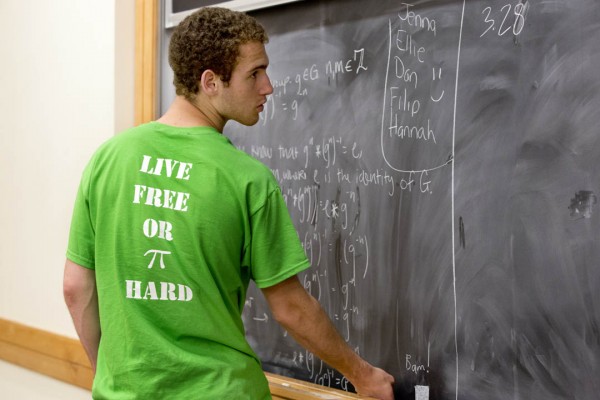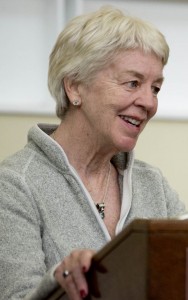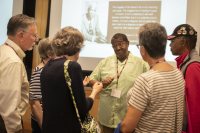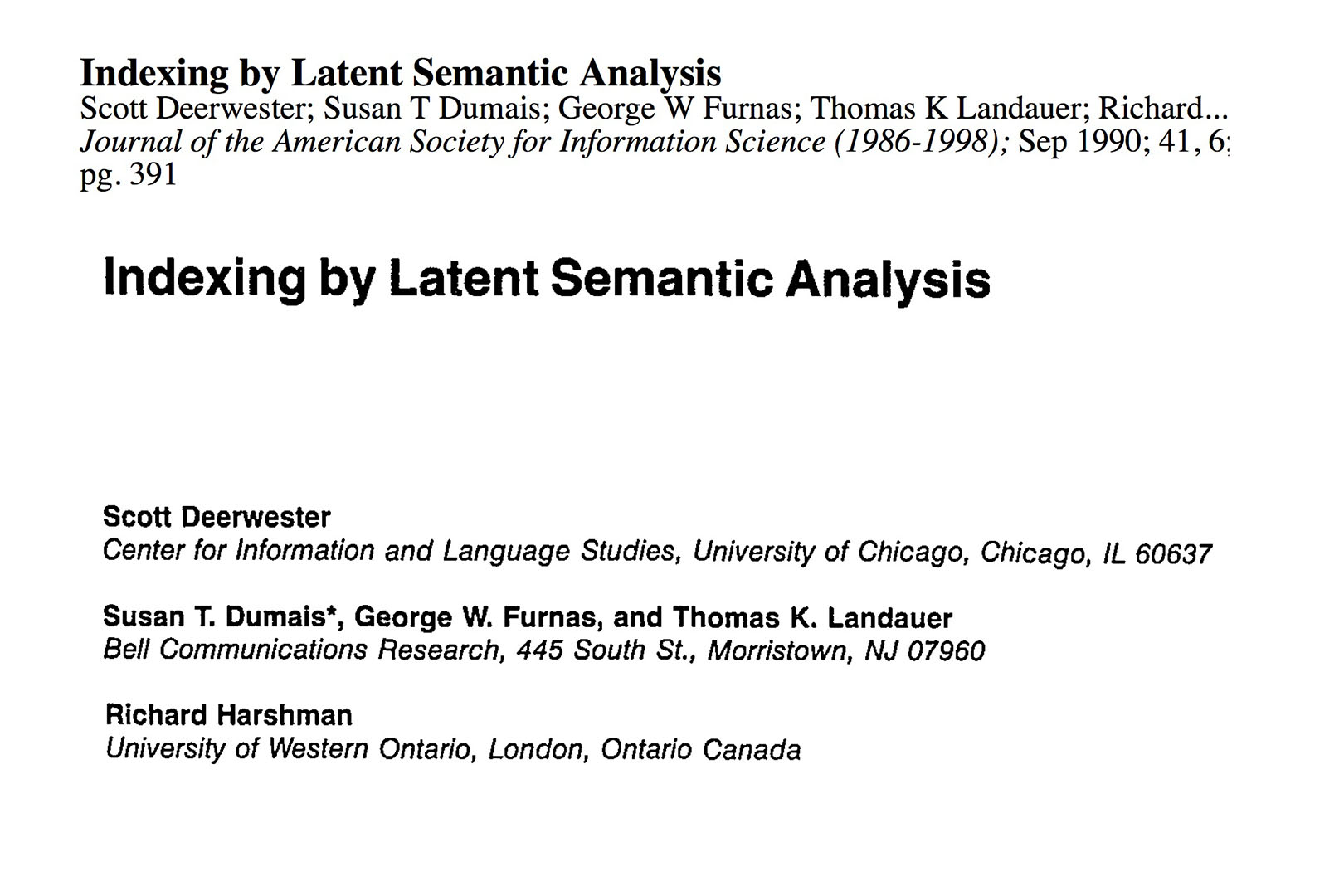
Why go to college? It means a meaningful life, says psychologist Jill Reich

Creating knowledge: Daniel Paseltiner ’16 works on mathematical group theory for the course nicknamed “Math Camp” during Short Term 2013. Photograph by Phyllis Graber Jensen/Bates College.
The question was, “Why go to college?”
To prepare for a career. To encounter the breadth of academic possibilities. To learn how to learn. To figure yourself out.
Alumni offered those answers and others to the query with which Jill Reich began her Reunion presentation, Examining College Life. And they were all correct.
If you want to know how the Bates education addresses student needs, developmental and intellectual, it’s hard to imagine anyone better equipped than Reich. She is a developmental psychologist with a particular interest in cognitive processes — and she’s former dean of the faculty at Bates, from 2000 to 2011.
Her Saturday morning talk made an elegant case for Bates’ qualifications as a builder of intellects and a precursor, in Reich’s words, to a “meaningful life.” The heart of Reich’s presentation, so to speak, was the brain.
With their brains still developing and their futures still blank pages, college students are “emerging adults” — a phrase, in currency for a dozen or so years, describing people past adolescence but not quite grown up. It’s a demographic concept peculiar to affluent societies, says Reich, in which young people, say 18 to 30 years old, can take the time to explore life before settling down.
These emerging adults enjoy privileges of adulthood but are still like children in important ways, such as being financially dependent on their families, lacking a clear idea of their career interests, or lacking intimate relationships.
“It’s an age of identity exploration, and this is extremely important,” Reich said. “It’s really where our students can begin to ask, ‘Who am I? What’s important to me? How do I move through the world? What are my values, what are my talents?”
It’s an age of self-focus, Reich said, but that’s appropriate. “They’re leaving their parents, they’re leaving that intimate relationship where adults are telling them what to do and how to do it. But they haven’t yet established their own family, where they have an ongoing day-to-day set of obligations. And so they can be focused on themselves.”
Emerging adulthood is a time of hopefulness, too. People of this age “do believe that they’re going to have a better life than their parents, and that they do have the ability to do this, and they will succeed.”
Parallel to their personality development, students are also changing how they learn, and how they think about learning. Reich explained that the way we amass knowledge progresses along a continuum that begins with unquestioning reliance on what we see or are told, and ends at the sophisticated ability to evaluate evidence, synthesize through the gaps, relate it to experience, extrapolate and interpolate.
It’s a journey from external to internal reliance. Students arrive on campus midway through this continuum. “They come into college thinking there’s a right answer, and ‘I just have to get it,'” Reich said. “In fact, what happens developmentally is that they have to learn that knowledge is constructed, and there are very few [cases of] ‘one right answer.’ ”
Initially, students aren’t comfortable with this. “It means that they have uncertainty. It means that it isn’t as simple as going to the professor and asking, ‘What do you want?’
“Because what we want is for them to figure it out. What we’re looking for is, what is their process, what is their set of facts, what is their argument, how are they putting it together.” The intellectual goal, Reich said, is to send students out the door understanding where knowledge comes from and able to create it themselves.
The liberal arts education aims to support both the personal and intellectual journeys. “Fundamentally, what we’re about is helping our emerging adults ask, ‘Who am I?’ ” Reich said. ” ‘How do I fit into the world, what am I good at, what are my passions?’ ”
“And all of the kinds of experiences that we put together in a college education are really focused around this kind of question.”
“Ultimately, what this is all about is to lead a rich, satisfying and meaningful life,” she said. “And each individual is going to create an answer to that.”





